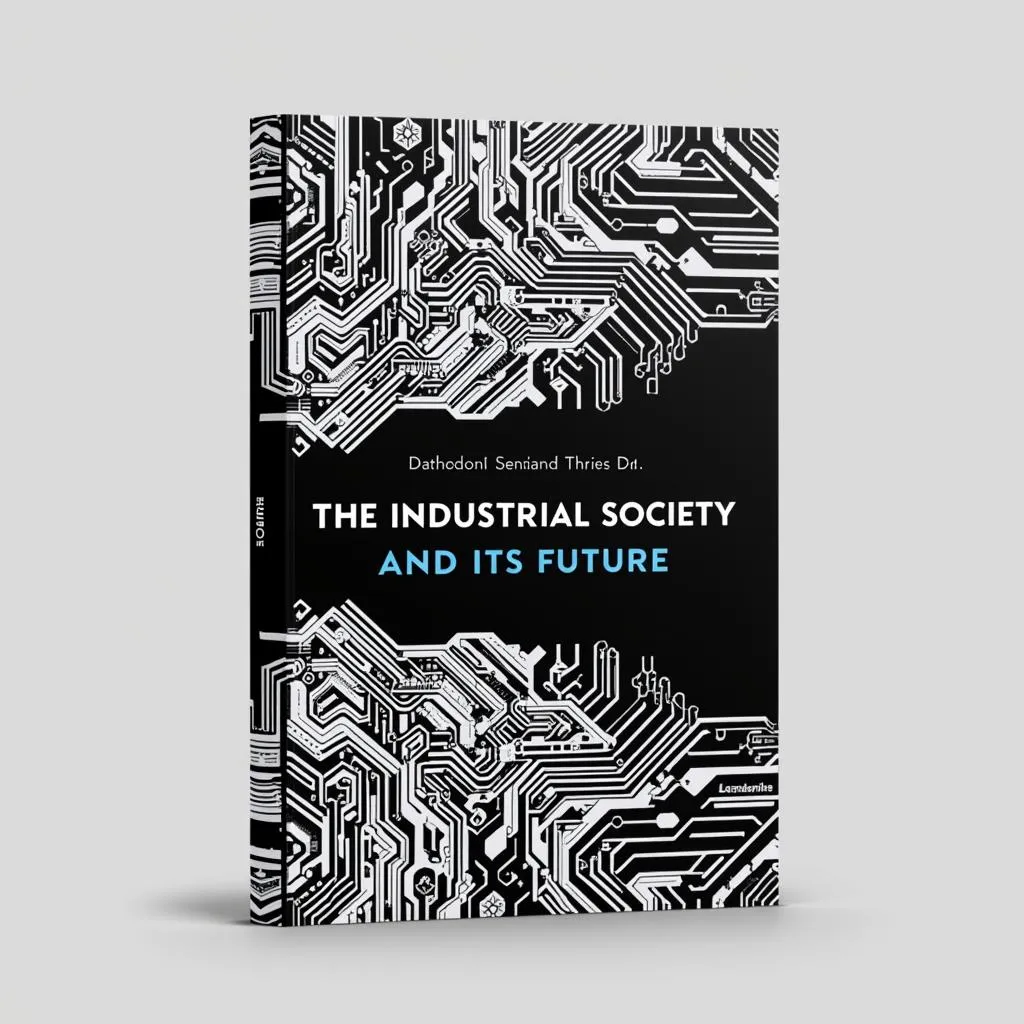The Industrial Society And Its Future Pdf, more widely known as the Unabomber Manifesto, is a 35,000-word document written by Ted Kaczynski. Published in 1995 by The Washington Post and The New York Times, the manifesto outlines Kaczynski’s critiques of modern society, focusing on the negative impacts of industrialization and technology. This article delves into the key themes of the manifesto, exploring its arguments and their relevance to the pursuit of peace in a digitally driven world.
 Cover of The Industrial Society and Its Future PDF
Cover of The Industrial Society and Its Future PDF
Kaczynski, a former mathematics professor, argued that technological advancement, while seemingly progressive, has led to a decline in human freedom and autonomy. He believed that individuals in industrialized societies are trapped in a system that demands constant productivity and conformity, stripping them of their agency and purpose. He termed this phenomenon “oversocialization,” where societal norms and expectations stifle individual expression and creativity.
Technology’s Grip on Freedom
The manifesto criticizes the pervasive nature of technology, arguing that it creates artificial needs and desires. Instead of liberating humanity, technology, according to Kaczynski, has created new forms of dependency and control. He points to the erosion of traditional communities and the rise of social isolation as evidence of technology’s detrimental effects on human connection.
 Image depicting people engrossed in their phones, ignoring each other in a social setting
Image depicting people engrossed in their phones, ignoring each other in a social setting
The Price of Progress
Kaczynski’s central argument revolves around the idea that technological progress comes at a cost. He contends that the pursuit of efficiency and material comfort has led to the degradation of the natural world and the alienation of individuals from their true selves. The manifesto argues that this pursuit of progress is unsustainable and will ultimately lead to societal collapse.
Violence as a Means to an End
One of the most controversial aspects of the manifesto is Kaczynski’s justification of violence. He argues that revolutionary violence is necessary to overthrow the industrial-technological system and pave the way for a freer society. This advocacy of violence is where the manifesto diverges from the principles of peace and non-violence.
Finding Relevance in a Digital Age
While the manifesto’s endorsement of violence is undeniably problematic, some of its critiques of modern society resonate in our increasingly digital world. The concerns about technology’s impact on individual freedom, the erosion of privacy, and the potential for social control are more relevant than ever.
 Abstract image depicting a figure trapped within digital codes, symbolizing the challenges to privacy and freedom in the digital age
Abstract image depicting a figure trapped within digital codes, symbolizing the challenges to privacy and freedom in the digital age
The Path to a Peaceful Future
Although Kaczynski’s solutions are extreme and unacceptable, his work serves as a stark reminder of the importance of critical thinking and engagement with the ethical dilemmas posed by technology. Promoting peace in a digital age requires thoughtful consideration of these issues, fostering dialogue, and advocating for responsible technological development that prioritizes human well-being and autonomy.
The Industrial Society and Its Future PDF, despite its flaws, sparks important conversations about the direction of society and the role of technology in shaping our future. It underscores the need for a mindful approach to progress, one that prioritizes human connection, environmental sustainability, and the preservation of individual freedom. By engaging in constructive dialogue and promoting peaceful solutions, we can work towards a future where technology empowers rather than enslaves.
 using WordPress and
using WordPress and